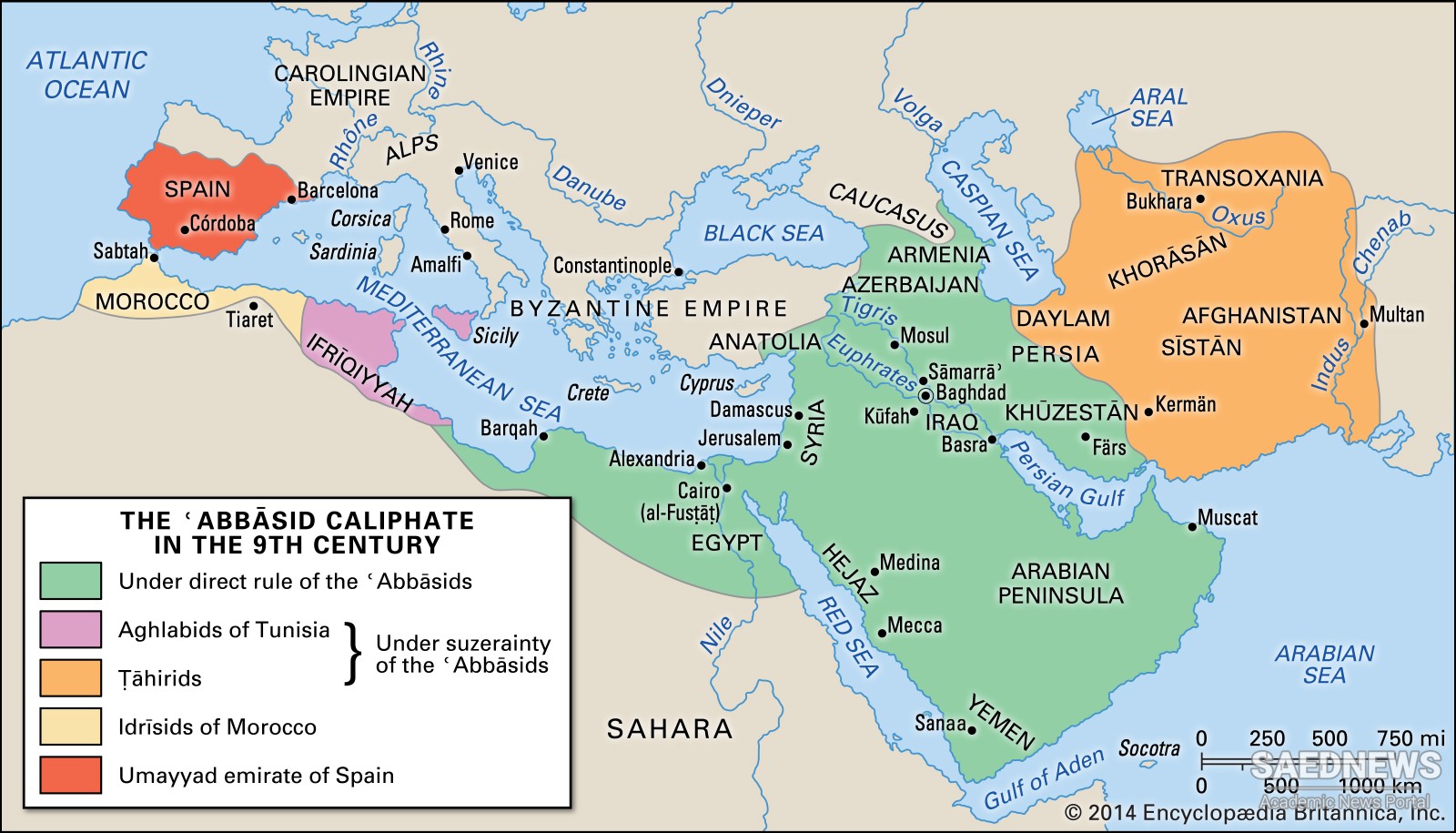Tahir became governor of all the caliphal lands east of Iraq in 205/821. He is said deliberately to have sought investiture of these in order to remove himself from court, fearing that al-Ma'mun had turned against him. The governorship was actually secured by a piece of unpleasant intrigue, in which the intercession of al-Ma'mun's vizier Ahmad b. Abi Khalid was employed against the incumbent governor of Khurasan, Ghassan b. 'Abbad, protege and kinsman of the previous vizier al-Hasan b. Sahl. Soon after his arrival in the east, Tahir began leaving al-Ma'mun's name out of the khutba, and certain coins minted by him in 206/821-2 also omit the caliph's name; both these actions were virtually declarations of independence from Baghdad. However, at this point he died in Marv (207/822). It is obviously difficult to gauge Tahir's motives, since we do not know how events might have turned out. There are certain contradictions and differences of chronology in the historians' accounts, and it is possible that Tahir was poisoned on the orders of Ahmad b. Abi Khalid, concerned to vindicate his own fidelity to the caliph now that the man whom he had personally recommended for office had proved rebellious. It is possible that the significance of Tahir's action has been exaggerated. Despite it, the caliphs did not hesitate to appoint Tahir's sons and other members of the family to the governorship of Khurasan, and their power in Baghdad and Iraq continued undiminished. None of these subsequent Tahirids emulated Tahir; all of them behaved circumspectly and entirely correctly towards the caliphs. When Tahir died, his son Talha assumed command of the army in Khurasan, although he was powerless to prevent the troops from plundering his father's treasury. Al-Ma'mun eventually confirmed Talha in the governorship of Khurasan; certain sources say that the caliph at first appointed another son, Abd-Allah b. Tahir, but Abd Allah's preoccupation in al-Jaziira with Nasr b. Shabath's rebellion led him to make Talha his deputy in the east. Whatever the exact circumstances of Talha's succession to power, the significant point is that al-Ma'mun, apparently on the advice of Ahmad b. Abl Khalid, maintained a son of Tatar's in Khurasan. Either Tahir's gesture of rebelliousness was not regarded over-seriously, or else the caliph and his advisers realized that it was wisest in the circumstances to entrust Persia to the indigenous family of the Tahirids. Certainly, caliphal authority was beset by difficulties at this time. The Arab west was not yet fully reconciled to al-Ma'mun, with Nasr b. Shabath still at large and with disturbances in Egypt. In the east, Sistan was still in the throes of the protracted rebellion of the Kharijite Hamza b. Adharak or 'Abd-Allah, and most serious of all these revolutionary movements, the NeoMazdakite Khurramiyya sectaries, under their leader Babak, controlled Arran and Azarbaijan and were threatening Jibal. On the intellectual plane, the caliph was trying to secure greater religious harmony by making concessions to the Shi'a (seen in the adoption of the Eighth Shi'i Imam, 'AH al-Rida, as his heir in 201/816), and by encouraging the views of the Mu'tazilite sect on such topics as the createdness of the Qur'an; these policies had only succeeded in rousing conservative, orthodox forces to the defence of the Sunna, and had aggravated rather than composed religious dissensions within the caliphate. Thus by retaining the Tahirids in Khurasan, the caliphs took the line of least resistance and ensured a degree of continuity and stability in the east.


 Tahir Ibn Hussain's Successful Career within Abbasid System
Tahir Ibn Hussain's Successful Career within Abbasid System














































